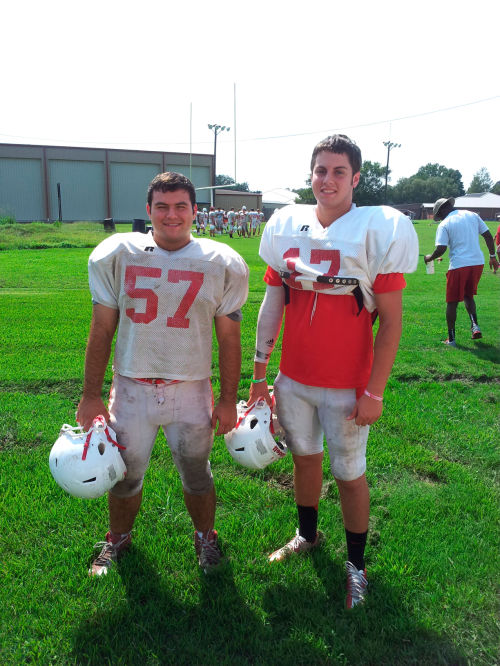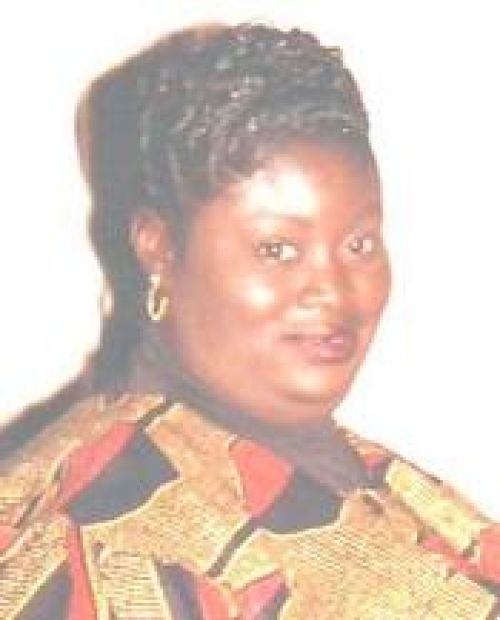
Central Catholic rebounds from slow start to 2013
December 11, 2013
Elaine Rudolph
December 11, 2013About four of five ordinances proposed by the Lafourche Parish Council over the past two years were generated by the administration, according to a review by the Tri-Parish Times.
At the midpoint of the current council term, 306 of the 381 laws proposed for council action were put forth by Parish President Charlotte Randolph’s office.
“The number represents the mandate by the (Home Rule) Charter that all of the contracts must go before council,” Randolph said.
Because the Charter grants the council oversight over various business dealings, the administration proposes them for approval as ordinances. Such transactions include servitude and lease agreements, supplemental appropriations and the acceptance of grant money and make up the majority of proposed ordinances. For instance, 76 supplemental appropriations – or post-enactment budget amendments – were proposed over the past two years.
“Even if it’s a servitude agreement, it is a contract and that’s why we have the majority of the items on the agenda,” Randolph said.
That’s not to say the administration doesn’t propose unique legislation. In 2013, Randolph’s office proposed changing employee hazard pay levels, stormwater-drainage requirements for residential development and nuisance abatement rules, among other parish laws.
Whether it is a proposed law change or regular contractual business, councilmen typically do not have much say until the proposition reaches their chambers. Instead the ordinances originate from various parish departments, where professionals examine the details and propose solutions.
“We’re all then deferring to the expertise of the people in that department,” Randolph said. “We contact the councilman whose district is involved, and we tell them about the situation and then they sponsor it.”
Independently of the administration, councilmen have proposed about 19.7 percent of the 381 ordinances that made it to their chambers in the first half of their current term. Thirty-four of the 75 ordinances councilmen sponsored pertained to speed limits, stop signs and other road or waterway signage.
Councilmen unilaterally said their role is broader than proposing legislation and the volume of ordinances they propose is only one metric on which to judge them.
As elected officials from specific districts, their primary job is to serve their constituents, and often residents’ issues don’t require new laws, they said.
Councilman Daniel Lorraine, who led all councilmen with 15 independent ordinances proposed (see table), said the impact of legislation weighs more than the number.
“I’m not in a race with anybody, and I’m not going to put something up just because I want to,” Lorraine said. “I want to make sure there’s a good reason behind it.”
Only voting members of the council can introduce ordinances, which have the force of law, but Randolph’s office can submit legislation through the council clerk if a councilman will sponsor it. When this occurs, the ordinance’s sponsor is written next to the notice “for the administration.”
The review of authorship was based on the law’s written sponsor, though sometimes an alternative councilman verbally proposed the motion.
Councilman Phillip Gouaux by a wide margin sponsors the most ordinances on behalf of the administration. He said he typically proposes anything the executive branch asks him to, even if he is in disagreement, because it facilitates debate on the topic. He also discusses his own ideas with the administration before he presents them to the council.
“Anything that I want to propose, I do bring it to the administration and get their input,” Gouaux said. “I’m not looking to blindside anybody. We’ve got to work together. … I think we need to work more closely with the administration.”
Frequently, ordinances proposed by the administration concern budgetary appropriations, servitude agreements or contracts, business that councilmen cannot conduct independently, Councilman Jerry Jones pointed out.
“Most of them are dealing with money or contracts,” Jones said. “We, as a council, can’t engage in contracts. We can propose the ordinance for them, to make it legal. You can say it’s supposed to be a check and balance system.”
Council Chairman Lindel Toups said all proposed ordinances should come from the administration. The executive branch has more time to devote to studying potential laws and should be entrusted to weed out forceless or redundant ideas, he reasoned.
“I think they should all go through the administration,” he said, adding that any councilmember’s independent ordinances would require multiple sponsorships. Such a change would require amending the Home Rule Charter.
Councilman Joe Fertitta has less trust in the administration. He is one of a few who won’t sponsor administrative proposals without first studying the details – “I’m very guarded with my sponsorship and my vote.” He also said it is neither a surprise nor a concern that councilmen proposed 41 non-signage ordinances the past two years.
“You don’t want to burden the parish with too many laws – our code of ordinances is four or five inches thick,” he said. “An ordinance is law, and you need to really take into consideration the influence that it has on the majority of the parish.”
Councilman Jerry LaFont proposed nine ordinances, the most of three freshmen on the council. He said he scrutinizes each proposal – whether it’s his idea, a constituent’s or a colleague’s – with a list of basic questions.
“Just because I agree with (an idea) doesn’t mean it’s right,” LaFont said. “Is it something to improve the parish? Is it a safety hazard? You can’t just regulate everything. … What’s the future of the parish? You can’t just look 10 years down the road.”
Councilman John Arnold, also in his first term, said that some ordinances written by the administration were actually conceived by councilmen. For example, his attempt to reassign money dedicated to a drainage project to a road project in 2011 was sponsored by the administration, as the executive branch writes all supplemental appropriations – ordinances that move money within the budget.
Arnold also stressed that public meetings are a small portion of his responsibilities, as he routinely fields 10-15 phone calls per week from constituents and tries to solve their problems.
“I’d say the biggest thing you’ve got to deal with is the public,” Arnold said. “You’re their voice. Being their voice, you have to stand up for things you might not agree on but mean a lot for them.”
Former Parish President Aaron Caillouet, in his first council term, proposed one ordinance independently of the administration.
“My role is to make sure I believe that the people in our particular districts get their money’s worth and have someone they can speak to in order to make contact to have stuff done in their area,” he said. “Out of all the problems that come up with my constituents, most have not been drastic changes, new laws or whatever.”
Most of Caillouet’s district falls in Thibodaux city limits, which reduces the need for him to propose signage laws – the most popular topic among the council’s ordinances. Regardless, he said, that shouldn’t fall under the council’s purview.
“I don’t think traffic control should be part of our job whatsoever,” Caillouet said. “I think we should have an independent agency like South Central Planning or the sheriff that will actually make a study to determine whether something has to be put up or not.”
Attempts to reach Councilman Michael Delatte, who proposed 12 ordinances – 10 of which relating to speed limits or signage – were unsuccessful.
All councilmen interviewed agreed that their purpose is to serve their constituents. When residents’ problems pertain to unkempt parish property, missed garbage pick-ups, clogged drainage ditches or other issues, new ordinances are rarely the required solution.
So the councilmen communicate the issues to the administration by way of work orders filed electronically.
“The work order process is certainly one of the best we’ve had in many years,” Randolph said. “There’s a trail, or an opportunity to check the progress of it. When a councilman submits that information, it becomes a written document, and therefore, it can be accessed very easily. When it’s completed, we also notify the councilman. It’s a very good system.”










